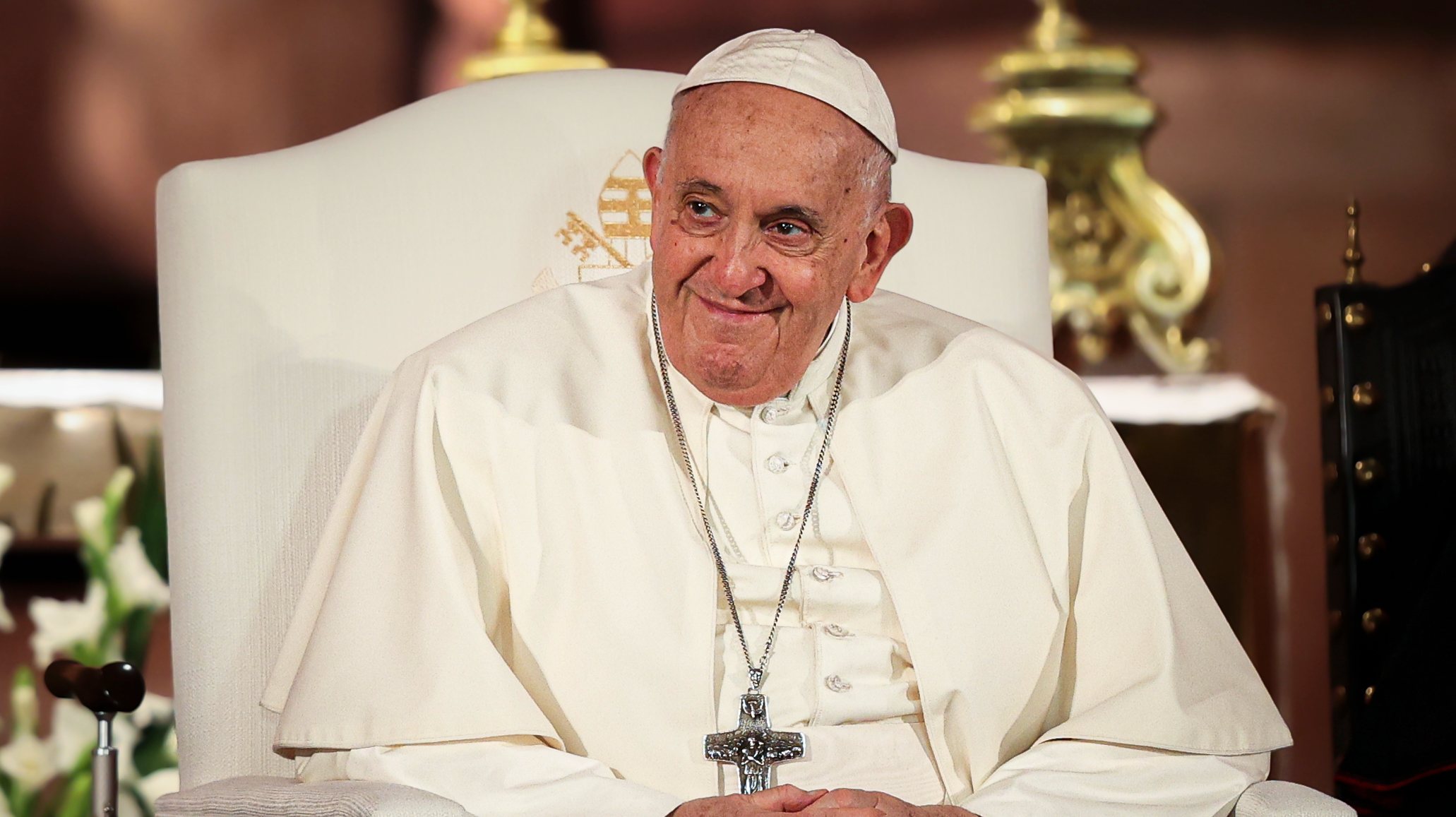New rules imposed by the Vatican tell employees of St. Peter’s Basilica that they must dress “decently.” In addition, tattoos or piercings must not be visible.
Pope Francis has banned employees of St. Peter’s Basilica from wearing visible piercings and tattoos, confirming the change in rules in the Regulations for Employees of the Factory of St. Peter’s Basilica, published on Saturday. The new rules aim to maintain “decorum” and respect the “work environment,” according to the statement.
According to the Pope’s chirograph published by the General Secretariat of the Holy See on the institution’s official website, the 170 employees of the São Pedro Factory, the body responsible for the conservation, restoration and public service of the Basilica, are subject to article 9.° to “take care of their external appearance in accordance with the needs and customs of the workplace, taking into account the aesthetics and work environment of the place” and, therefore, “Visible skin tattoos and body piercings are prohibited.”- something that was not included in the previous rules.
Also in Article 9 of the regulations, referring to “decorum”, the “sampietrini” – the name given to the site’s maintenance employees – must wear “clothing that is dignified and appropriate for the activity to be carried out, with work uniforms available, the composition and style of which has been established by the Factory”, under possible penalty of disciplinary sanctions and eventual expulsion.
“There is an air of homosexuality in the Vatican”: Pope Francis uses homophobic expression again to talk about homosexuality in seminars
In Article 7, concerning conduct, the Vatican requires workers to adopt “exemplary religious and moral behavior, including in private and family life, in accordance with the doctrine of the Church,” and to act in the Basilica “in a polite manner, respectful of the sacred place and correct toward others and the environment.”
However, these standards are not entirely new. As Father Enzo Fortunato, head of communications for the basilica, told Reuters news agency, these Restrictions already “existed in the past in a different form”Fortunato also explained to the Spanish newspaper ABC that the new regulations “promote a climate of fraternity and mutual trust to better welcome pilgrims and visitors. The aim is to take more responsible care of this place, to better value the talents of the people who work here and the message of the basilica.”
The document also has other new features and points that are missing. To work at São Pedro, it is still a requirement to be married by the Church, not to belong to organizations that act in a way that is “incompatible” with the Christian faith or to act personally in this way, as well as to present a “certificate of religious, moral and civil character, assigned by a parish priest or religious institution,” in accordance with article 4. However, the previous priority of admission to candidates who demonstrated “commitment and commitment to the ecclesiastical community” was removed from the document and the minimum age for entry to the Factory was changed from 21 to 18 years.
Regarding the duties of the “sampietrini”, the Vatican also recalled that You can not “Delete original documents, photocopies, electronic copies or other archival and work material related to his work and to keep notes or memoranda outside the workplace on matters discussed at the Factory (article 14).” This measure possibly came after the Vatican reported, nine years ago, the disappearance of manuscripts written by Michelangelo — stolen in 1997 — according to ABC.
Letters written by Michelangelo were stolen. It was 18 years ago, the Vatican only found out about it now
In exchange, all workers of associations linked to the Catholic Church “may enjoy paid annual vacations, upon request and prior authorization from the Human Resources Service, up to a maximum of six calendar days, for the normal development of the Spiritual Exercises (article 44)”, in addition to the vacation period associated with the permanent employment contract.
At the end of the document, the promise of loyalty that formalizes the employee’s contract is also described.I promise before God to be faithful to the Supreme Pontiff and his legitimate successors. and to strictly observe the secrecy of the office; I promise to diligently perform all my duties and to observe the orders given to me by my superiors.”
Source: Observadora
